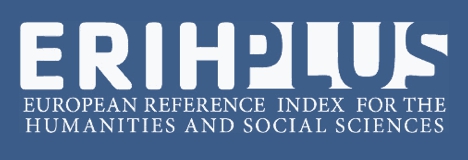Environmental perception of students from colégio de aplicação-ufrr about enronmental impacts in urban river basin of boa vista/rr
Abstract
This article describes my teaching practices along with the related experiment to my doctoral project, a requirement for approval in disciplines Teaching Stage II and III of the Doctorate Degree course in Geography, Federal University of Ceará. In doctoral thesis, I intend to evaluate the environmental awareness of students of the 1st Year High School CAp/UFRR on environmental degradation processes of the hydrographic basin of Frasco stream. However, this experiment aims to diagnose and analyze the level of perception and prior sensitization of students. For data collection it was used questionnaire and the analysis of the results showed that the students realize the integrated landscape mode, posing themselves as the middle part. The result showed that the watershed was not understood as an "open system". Around 40% of the students believe the hydrographic basin just as an área. It is clear the difficulty they have in understanding basin as a geosystem. The continuity of this work that permeates the construction of the thesis aims to involve students participating in new methodologies, and increase the perception that students have on the environment and sensitize them to the need for a new paradigm, with new values and attitudes to sustainability environmental.
References
DEMO, Pedro. Pesquisa Participante Mito e Realidade. Brasília: InB/UNEP, 1982.
FERRARA, L. A. As cidades ilegíveis – percepção ambiental e cidadania. In: DEL RIO, V.; OLIVEIRA, L. (Org.) Percepção Ambiental: A Experiência Brasileira. São Carlos: Editora da UFSCar, 1996. p. 61-80.
GORAYEB, A. PEREIRA, L. C. C. Análise Integrada das Paisagens de Bacias Hidrográficas na Amazônia Oriental. Fortaleza: Imprensa Universitária, 2014.
LEFF, E. Saber ambiental: sustentabilidade, racionalidade, complexidade, poder. 9 ed. Petrópolis (RJ): Vozes, 2012.
NIKOKAVOURAS, E. A. Q.; BATISTA, L. P. P.; PEREIRA, M.B.; PAULA, E. O. Do Mundo da Escola do Mundo: Educação Ambiental e os Etnoconhecimentos por Uma Educação Popular. In. MATOS, K. S. A. L.; SAMPAIO, J. L. F. (Org.). Diálogos em Educação Ambiental. Fortaleza: UFC, 2012. p. 202-219.
PONTUSCHKA, N. N; PAGANELLI, T. I; CACETE, N. H. Para ensinar e aprender Geografia. 3 ed. São Paulo: Cortez, 2007.
PORTO, M. F. A.; PORTO R. La L. Gestão de bacias hidrográficas. Estudos Avançados 22 (63), 2008.
RODRIGUEZ, J. M. M., J. M. M.; SILVA, E. V.; LEAL, A. C. Planejamento ambiental de bacias hidrográficas desde a visão da geoecologia da paisagem. In. FIGUEIRÓ, A. S.; FOLETO, E (org.). Diálogos em geografia física. Santa Maria: Ed. da UFSM, 2011.
ROSA SILVA, C. L. Variação Espaço-temporal da Expansão Urbana e da Rede de Drenagem da Bacia do Igarapé Grande na Cidade de Boa vista, Roraima. Boa Vista, 2010. 120f. Dissertação (Mestrado em Recursos Naturais) – Programa de Pós-graduação em Recursos Naturais, Universidade Federal de Roraima.
RUFFINO, P. H. P.; SANTOS, S. A. M. dos. Proposta do Programa de Educação Ambiental. In: MASCARENHAS, S. et al. (Org.). O estudo de bacias hidrográficas: uma estratégia para Educação Ambiental. 2. ed. São Carlos: Rima, 2003. p. 9-13.
Keywords
Policy Proposal for Free Access Journals
Authors who publish in this journal agree to the following terms:
a. Authors retain the copyright and grant the journal the right of first publication, with the work simultaneously licensed under the Creative Commons Attribution License which allows the sharing of the work with acknowledgment of the authorship of the work and initial publication in this journal.
b. Authors are authorized to take additional contracts separately, for non-exclusive distribution of the version of the work published in this journal (eg publish in institutional repository or as a book chapter), with acknowledgment of authorship and initial publication in this journal.
c. Authors are allowed and encouraged to publish and distribute their work online (eg in institutional repositories or on their personal page) at any point before or during the editorial process, as this can generate productive changes, as well as increase the impact and The citation of published work (See The Effect of Free Access).





















